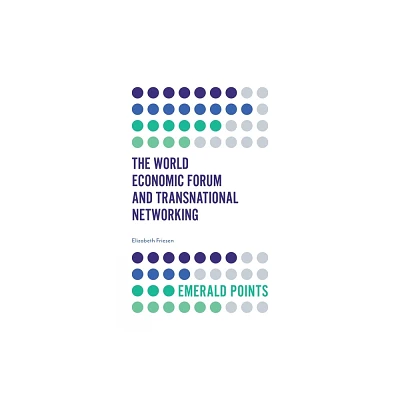Home
Genocide, Geopolitics and Transnational Networks: Con-textualising the destruction of Unión Patriótica Colombia
Loading Inventory...
Barnes and Noble
Genocide, Geopolitics and Transnational Networks: Con-textualising the destruction of Unión Patriótica Colombia
Current price: $200.00


Barnes and Noble
Genocide, Geopolitics and Transnational Networks: Con-textualising the destruction of Unión Patriótica Colombia
Current price: $200.00
Loading Inventory...
Size: Hardcover
*Product Information may vary - to confirm product availability, pricing, and additional information please contact Barnes and Noble
This volume seeks to uncover and discuss the links between genocide, geopolitics and transnational networks. By studying the destruction of the Union Patrotica (UP) in Colombia - a process usually regarded as one of the extreme by-products of the Colombian armed conflict- through the lens of genocide studies, Gomez-Suarez challenges mainstream international relations, genocide and Colombian armed conflict studies.
Moving beyond the analysis of the Colombian case, the book offers a broader interdisciplinary theoretical framework that also attends to transnational relations of perpetrators and resisters and the political economy of affective-dispositions for mapping genocidal conjuncture. Methodologically, the text aims to present a re-interpretation of what constitutes genocide beyond its legal definition and turn towards its political and ethical dimensions to create a conceptual framework in which genocide appears to turn ever more into a decentralized network of various actors that contributed to a genocidal mentality, which, ultimately, enable the destruction of the civil society networks.
This work will be an important contribution to both the debates on genocide and international relations and the study of global connectivities.
Moving beyond the analysis of the Colombian case, the book offers a broader interdisciplinary theoretical framework that also attends to transnational relations of perpetrators and resisters and the political economy of affective-dispositions for mapping genocidal conjuncture. Methodologically, the text aims to present a re-interpretation of what constitutes genocide beyond its legal definition and turn towards its political and ethical dimensions to create a conceptual framework in which genocide appears to turn ever more into a decentralized network of various actors that contributed to a genocidal mentality, which, ultimately, enable the destruction of the civil society networks.
This work will be an important contribution to both the debates on genocide and international relations and the study of global connectivities.

















